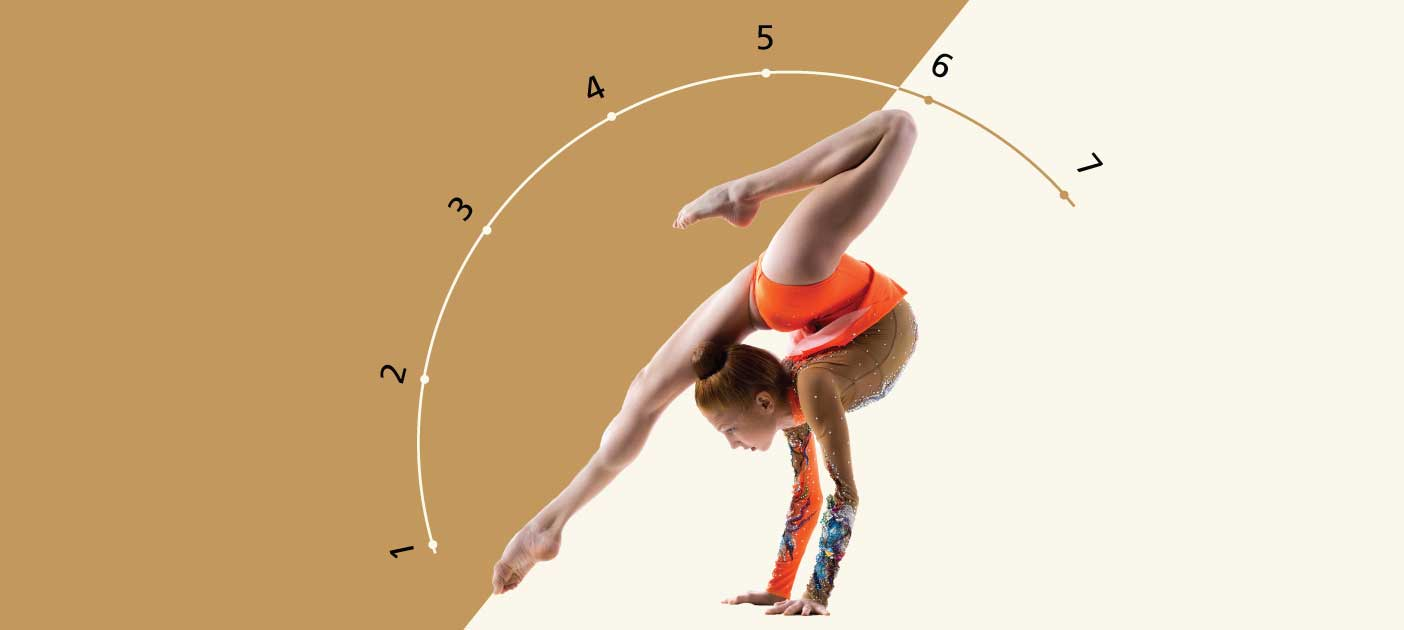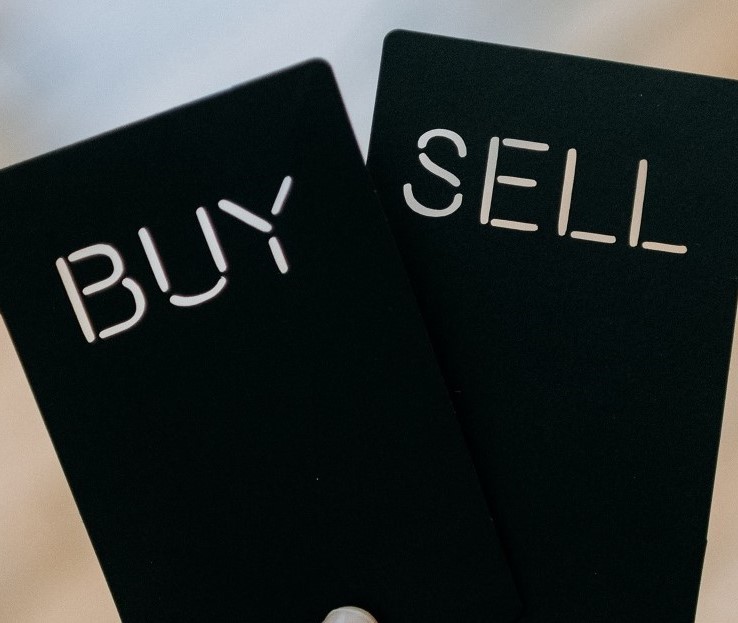A fund (also known as unit trust) that’s a one-stop shop to diversify your portfolio with a mix of equities and bonds.
A common example would be a fund that invests 60 per cent in stocks, and 40 per cent in bonds. By diversifying with both equities and bonds, a balanced fund can have a better risk/reward profile, as compared to a pure equity or bond fund.
Like regular funds, balanced funds are overseen by a fund manager. This means that, as an investor, you can treat them as a passive investment. There's no need to monitor the market and make decisions on which assets to buy or sell - the process is entrusted to a full-time financial professional.
#1 Diversification
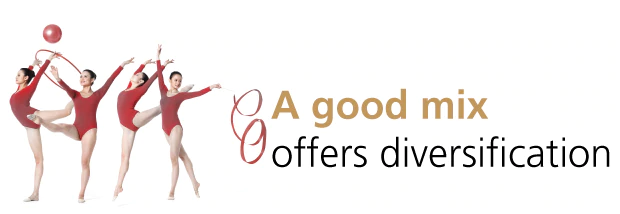
To protect yourself from downturns in the market, it’s important to invest in a mix of uncorrelated assets. For example, if you just invest in gold mining company, a jewellery company, and physical gold, your assets would be poorly diversified. A downturn in the gold market could wipe out the bulk of your portfolio.
As such, it’s important to invest in a range of different, unrelated companies, as well as in a mix of different assets. Unlike many funds that only focus on equities or bonds, a balanced fund mitigates risk by diversifying your investments across many different companies, in both equities as well as bonds.
Should a downturn occur in one industry, you can rest easy knowing that you're also invested in other, unrelated companies. Likewise, the bond market often has an inverse relationship to the equities market. If the stocks are not doing well in the balanced fund, the bond holdings could compensate for it, and vice versa.
#2 Professionally Managed
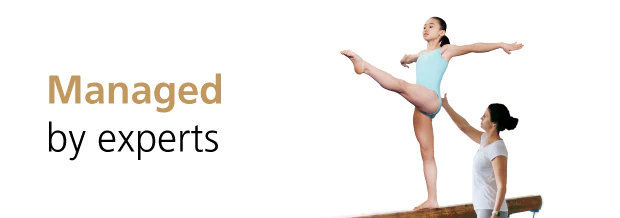
Balanced funds are managed by financial professionals, who pick the assets to ensure the fund performs well. If you're new to investing or do not have a lot of time, this is an option to consider.
You won't need to spend hours rebalancing your portfolio, or picking out available assets. Investing in such a diversified portfolio requires significant resources and personal and emotional commitment.
#3 A Balance between Wealth Growth and Wealth Preservation
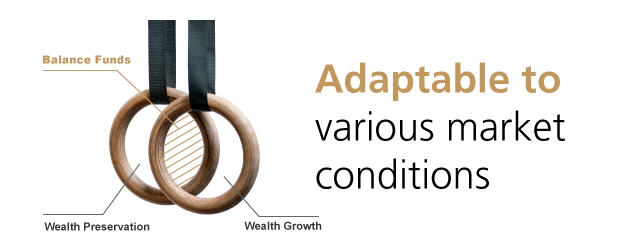
During economic upturns, equities tend to outperform bonds. Companies grow faster and provide higher dividend payouts, while their share values increase. Equities have unlimited upside, while bonds can only return capital with interest.
During economic downturns, the reverse often becomes true. Bonds are debt instruments, so companies must make repayments regardless of market conditions. This ensures a solid income stream to bondholders, even when the market is bad.
By combining bonds and equities, balanced funds strike a position between wealth growth and wealth preservation. Balanced Funds can provide returns that may be lower than equities, but are generally much better than bond returns. These returns generally outpace the inflation rate. At the same time, the bonds component ensures a balanced fund can protect your existing wealth, even when times turn difficult.
Overall Balanced Funds tend to have higher returns per unit of volatility than bond or equity funds, that is what we mean by risk/reward profile.
This makes balanced funds a good choice for investors in their 40s, who have a need to shore up their retirement funds. Balanced Funds can continue to grow your wealth, without taking big risks with your accumulated savings.
#4 Reduces the Need to Own Multiple Funds
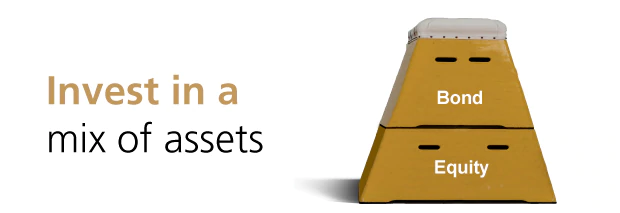
When you invest in a balanced fund, it removes the need to invest in separate equity funds and bond funds. It's also easier to monitor the performance of your portfolio, as there's no need to interpret the returns from multiple unit trust products. You just need to track the performance of your balanced fund.

As with all investments, here are some things to take note of before you plunge into balanced funds.
#5 Slower returns compared to pure equities funds
A sizeable portion of a balanced fund is invested in bonds. As such, they are unlikely to outperform a pure equities fund over a long investment horizon (e.g. 20 or 25 years). If you’re looking for a more active product, then balanced funds are not for you. Balanced funds are better suited to investors who want to take lower risks while still growing their retirement savings.
#6 Not well suited to Do-It-Yourself (DIY) investors
Balanced funds are run by qualified fund managers. Investors do not have direct control over which assets are bought or sold. Balanced funds, like all unit trust funds, are designed for investors who seek passive means of managing their wealth.
#7 Not for investors who are purely focused on wealth protection
Some investors are focused purely on protecting their wealth.
For example, if you are a retiree in your 70s, you would want to focus on protecting your remaining wealth, rather than risking it for growth. Investing in equities (whether by directly buying stocks, or buying funds with a large equities component) could subject your remaining wealth to unwanted risk.
For such investors, it is more appropriate to consider buying a pure bond fund or just buying bonds directly.
Risk Disclosure and Important Notice
The information herein is for information only. DBS accepts no liability whatsoever for any direct, indirect or consequential losses or damages arising from or in connection with the use or reliance of this publication or its contents
Investment involves risks. The information provided is based on sources which DBS Bank Limited and DBS Bank (Hong Kong) Limited believe to be reliable but has not been independently verified. Any projections and opinions expressed herein are expressed solely as general market commentary and do not constitute solicitation, recommendation, investment advice, or guaranteed return. The above information does not constitute any offer or solicitation of offer to subscribe, transact or redeem any investment product. Past performances are not indicative of future performances. You should make investment decisions based on your own investment objective and experience, financial situation and particular needs. You should carefully read the product offering documentation, the account terms and conditions and the product terms and conditions for detailed product information and risk factors prior to making any investment. If you have any doubt on this material or any product offering documentation, you should seek independent professional advice.
Securities trading is an investment. The prices of stocks fluctuate, sometimes dramatically. The price of a stock may move up or down and may become valueless. It is as likely that losses will be incurred rather than profits made as a result of trading stocks. The investment decision is yours but you should not invest in any stock unless you have taken into account that the relevant stock is suitable for you having regard to your financial situation, investment experience and investment objectives.
Customers should be aware that the prices of the Callable Bull / Bear Contracts and Warrants may fall in value as rapidly as they may rise and holders may sustain a total loss of their investment. The Bank does not provide securities advisory service. Any person considering an investment should seek independent advice on the investment suitability when considered necessary.
Bonds (“the Product”) are investment products and some of them may involve derivatives. The investment decision is yours but you should not invest in the Products unless DBS Bank (Hong Kong) Limited who sells them to you has explained to you that the Products are suitable for you having regard to your financial situation, investment experience and investment objectives.
Foreign exchange involves risk. Customers should note that foreign exchange may incur loss due to the fluctuation of exchange rate.
Funds are investment products. The investment decision is yours but you should not invest in the product unless the intermediary who sells it to you has explained to you that the product is suitable for you having regard to your financial situation, investment experience and investment objectives.
The information provided above have not been reviewed by the Securities and Futures Commission of Hong Kong or any regulatory authority in Hong Kong.


